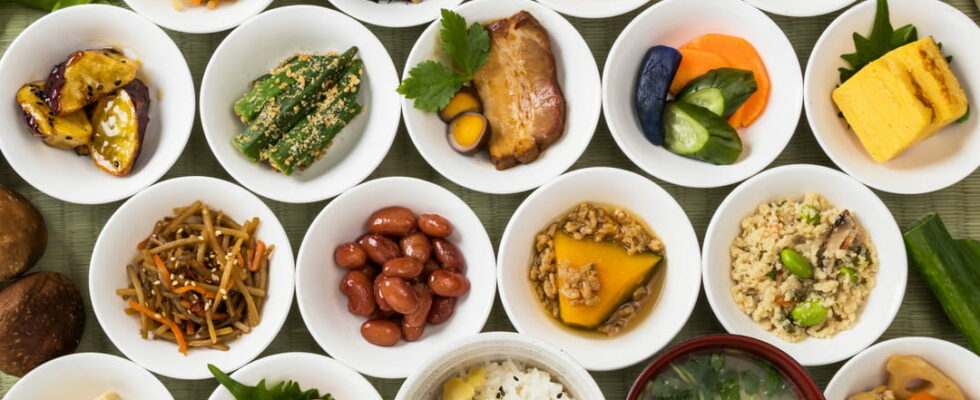In Japan, there are tens of thousands of centenarians. According to a nutritionist, the secret to longevity is in their plates. Here are the foods they all eat.
Japan is now the country with the highest number of centenarians in its population. The latter has even increased from 153 in the 1960s to more than 92,000 in recent years. The law for the protection of the elderly, promulgated in 1963, has played an important role in increasing the life expectancy of the Japanese population. But for Michiko Tomioka, a Japanese emigrant in the United States, who became a nutritionist specializing in longevity, the reason for such a phenomenon can be explained by the lifestyle of these elders and more broadly of the Japanese population.
In an article published by the American TV channel CNBCshe explains that “the secret [des Japonais] to live long is to have a conscious diet and to respect Ikigaia Japanese concept that means finding one’s purpose.” The specialist herself has retained the eating habits of her home country. While this may seem a bit far-fetched, in reality many of the foods consumed daily by the Japanese are packed with nutrients that promote good health and longevity.
Among the best known is matcha. This green tea contains vitamins B and C, which promote the proper functioning of the nervous and muscular systems and contribute to the elasticity and resistance of the skin, bones, cartilage and ligaments. Very fashionable, and yet more present on supermarket shelves, seaweed is an integral part of Japanese meals and provides, among other things, iodine and iron necessary for the transport and use of oxygen by red blood cells.
The nutritionist also recommends incorporating ginger into your diet, and for good reason: this root is known for its healing properties. In addition, ginger is now available in many forms, which makes it easier to incorporate into recipes. Sesame and tofu are also on the specialist’s list, because they provide vitamins B and E – limiting cellular aging – as well as magnesium, calcium, protein and fiber, and help better control cholesterol.
Shiitake mushrooms are also one of the basic ingredients of Japanese gastronomy. Highly prized in vegetarian diets, this vegetable has anti-inflammatory properties and has a texture often compared to that of meat, it also goes particularly well with cooking methods such as smoking and roasting. Michiko Tomioka also strongly encourages the consumption of beans, soybeans and broad beans, for the many polyunsaturated fatty acids that they contain and are excellent for the cardiovascular system.
